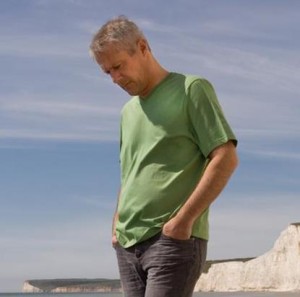Statistics indicate that suicide is the leading cause of death in 15 – 44 year olds in Australia; and for every completed suicide, it is estimated that approximately 30 people have made a suicide attempt.
Suicide can be as a result of planned or accidental events, that lead to death; at times suicide attempts can lead to permanent disability. Self-harm refers to behaviours that are considered to put a person at risk of injury or death.
So what are the risks factors and signs to look out for?
Risk Factors
- Thoughts of, or plans of death;
- Behaviours that cause or risk injury such as self-harm, substance misuse/abuse, deliberate risk taking;
- Poor social support and social isolation;
- Loss/grief, separation/divorce, relationship violence;
- Current symptoms of depression or mental health condition (eg hopelessness, self-blame, major change in appetite, change in sleep, loss of concentration);
- Poor work performance, loss of job, workplace bullying;
- Having a family member or friend who has died due to suicide;
- Individuals that are male, culturally diverse (eg indigenous), teenagers and young adults, have experienced a major physical injury or disease (eg cancer, accidents, etc);
- Women during pregnancy/postnatal period, or who experience parenting stress with many children;
- Change in financial situation (eg business loss, bankruptcy, credit card debit, gambling or retrenched from workplace);
- Legal problems, at risk of imprisonment, parenting and family legal disputes.
Suicide risk is higher in individuals with many of these factors, but the following can really make a positive difference:
- Close and emotionally supportive relationships;
- Physical health and fitness;
- Visits to health professionals, maintaining health and wellbeing through regular check ups;
- No current drug use;
- Utilising problem solving skills when faced with barriers;
- Good health routines eg diet, exercise, sleep and self-care;
- Communication that is assertive, solution-focused and open with social supports;
- Optimism and positive thinking, creativity and resilience;
- Living in safe accommodation;
- Spiritual beliefs that value life;
- Addressing the mole hills before they build into a mountain;
- Self-esteem and self-worth – valuing the positives and strengths.
There are many choices available for help. If another person you are helping is experiencing current symptoms and may be at risk, there are some steps you can take.
Support & Prevention
 Life Line is available 24/7 and can provide emotional support over the phone and link you to services in your area. Phone 13 11 14.
Life Line is available 24/7 and can provide emotional support over the phone and link you to services in your area. Phone 13 11 14.- The ATAPS program provides phone counselling. Call the Suicide Call Back Service on 1300 659 467 from anywhere in Australia for the cost of a local call.
- Make an urgent appointment with your GP or closest health service and describe the symptoms or urgency when booking.
- Public hospitals usually have an associated mental health unit that provide hospital care for those at risk of suicide. Admission to a hospital can occur with assistance of emergency services such as the police or ambulance. Calling OOO is an option if someone’s life is at risk.
- If you have a counsellor, psychologist or psychiatrist, ensure you have an appointment sooner rather later. Share about your symptoms, risk factors and protective factors.
- Gain support ASAP from those you trust the most. This may be your family and/or friends. Explain your situation and ask them for help. Often people forget that others care and want to assist them to find help.
- Do not misuse substances; and avoid being alone. Make your home safe by removing lethal items or objects that may put you at greater risk in a moment of helplessness or despair.
- Distraction can help. Some common ways to distract yourself might include ringing a friend, going for a jog, cooking a nice meal, going to a movie, reading a book, finding your lost 500 piece puzzle!
If you live in Logan (Queensland, Australia), you may like to visit one of our psychologists to talk about how to manage thoughts and emotions.
It is common to feel confused about how to access a psychologist in Brisbane, or to find one that bulk bills. Why not try a Free Emotional Health Checkup at our Logan psychology clinic?
 Author: Dr Amanda White, PhD, B Psych (Hons), B Beh Sc, DipH, MAPS.
Author: Dr Amanda White, PhD, B Psych (Hons), B Beh Sc, DipH, MAPS.
Amanda is not currently taking bookings, however, we have a number of clinicians available for bookings.
To make an appointment please visit our webpage here to learn about our highly qualified clinicians, or call M1 Psychology Loganholme on (07) 3067 9129.